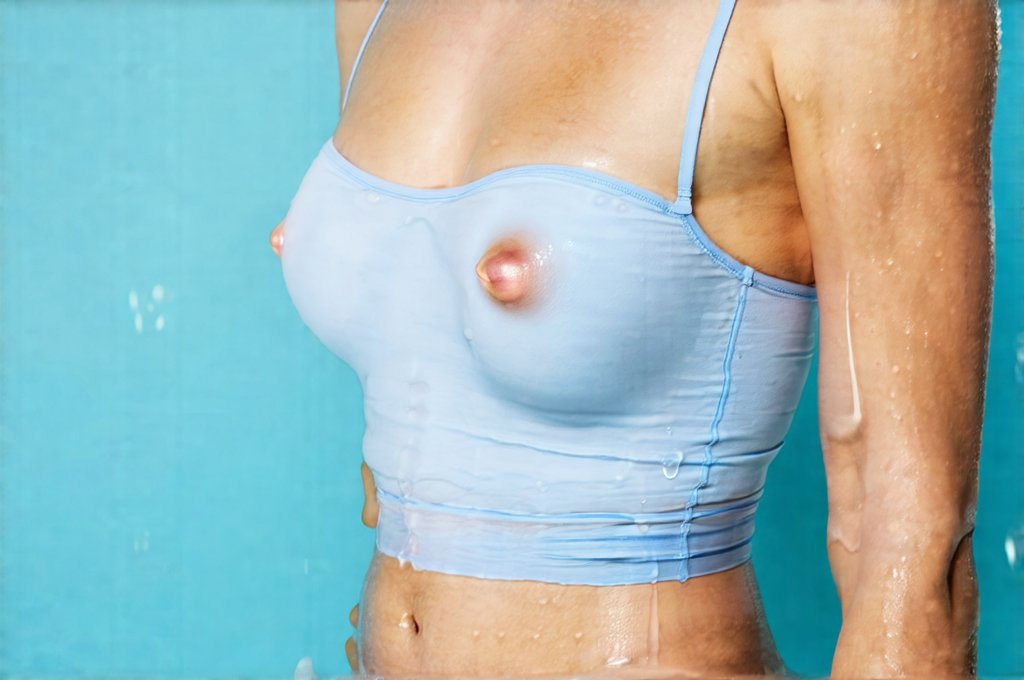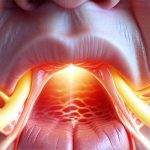The sensation of bloating – that uncomfortable tightness and swelling in the abdomen – is incredibly common. Many associate it with dietary indiscretions, perhaps too much gas-producing food, or even stress. But what if the culprit isn’t always what you’ve eaten, but rather how much you’ve drunk? While adequate hydration is undeniably vital for overall health and wellbeing, the idea that we can actually experience bloating from drinking too much water often comes as a surprise. It seems counterintuitive – surely more water helps flush things out, right? However, the body’s intricate systems don’t always operate on simple logic, and an excess of fluids can disrupt delicate balances, leading to uncomfortable bloating and other related symptoms.
This article will delve into the surprising connection between overhydration and bloating, exploring how it happens, what factors contribute to it, and what steps you might take to find a comfortable fluid balance. It’s important to remember that individual experiences vary greatly, and what constitutes “overhydration” differs from person to person based on various physiological and environmental factors. We’ll focus on understanding the mechanisms at play, not providing diagnostic or treatment advice. This is about empowering you with knowledge so you can better understand your body’s needs and listen to its signals. If dietary changes aren’t enough, consider how to eat without feeling heavy .
The Mechanics of Overhydration & Bloating
Overhydration, technically known as hyponatremia when severe enough to impact sodium levels, doesn’t necessarily mean you’re drowning internally. It refers to a state where the body has taken in more fluids than it can effectively process or excrete. This excess fluid isn’t just sitting stagnant; it impacts various bodily functions and can manifest as bloating through several mechanisms. One key factor is its effect on electrolyte balance, particularly sodium. Water follows sodium – if you dilute sodium concentrations by drinking excessive amounts of water, your body struggles to maintain proper cellular function.
This dilution throws off the osmotic pressure, which dictates where fluids move in and out of cells. When sodium levels drop significantly (a dangerous state usually requiring medical intervention), fluid can start moving into cells, causing them to swell. While this is more pronounced in severe hyponatremia affecting vital organs, even milder imbalances can contribute to a feeling of puffiness and bloating. Furthermore, the kidneys play a critical role in regulating fluid balance. When overloaded with fluids, they have to work harder to filter and excrete the excess, potentially leading to temporary fluid retention and contributing to abdominal distension. Understanding how to design a kitchen routine can help with overall digestive health.
It’s also crucial to understand that “water intoxication” isn’t just about drinking plain water. Many beverages contribute to overall fluid intake – juice, tea, coffee, even foods with high water content like watermelon or soup. This makes it easy to unintentionally exceed your body’s capacity without realizing it. – Consider the combination of a large glass of water with a hydrating meal. – Add in a post-workout electrolyte drink, and suddenly you’ve consumed a substantial amount of fluid in a short period. – And finally, remember that individual needs vary based on activity level, climate, diet, and overall health status. It may also be helpful to learn how to read restaurant menus when dining out.
Recognizing the Signs & Contributing Factors
Bloating from overhydration often presents differently than bloating caused by gas or food sensitivities. It tends to be less acute and more persistent. While gas-related bloating is usually accompanied by audible rumbling and a sense of trapped air, water-induced bloating may feel like a general fullness and tightness in the abdomen. Other potential signs include: – Noticeable abdominal swelling – even if mild. – A feeling of being sluggish or heavy. – Headaches that aren’t typical tension headaches. – Nausea (in more severe cases). – Changes in urination frequency.
Several factors can increase your susceptibility to overhydration-related bloating. Physical activity is a significant one; while staying hydrated during exercise is paramount, it’s easy to overestimate how much fluid you need, especially if you’re not losing fluids through sweat as rapidly. The environment also plays a role – hot and humid weather can make you feel thirstier, leading to increased water consumption. Pre-existing medical conditions, such as kidney problems or heart failure, can impair the body’s ability to regulate fluid balance effectively. Finally, certain medications (like diuretics) can disrupt electrolyte levels, making you more vulnerable to overhydration’s effects. Learning how fast eating habits might contribute to discomfort is also beneficial.
Understanding Electrolyte Imbalance
Electrolytes – sodium, potassium, magnesium, and chloride – are essential for numerous bodily functions, including nerve impulse transmission, muscle contraction, and fluid balance. As mentioned earlier, hyponatremia, or low sodium levels, is a hallmark of overhydration. When you drink too much water without replenishing electrolytes (especially sodium), the concentration of these vital minerals becomes diluted. This disruption interferes with cellular function and can lead to a range of symptoms beyond bloating.
Potassium also plays a crucial role in fluid balance and muscle function. While hyponatremia is more commonly associated with overhydration, imbalances in other electrolytes can exacerbate bloating and discomfort. – For example, low magnesium levels have been linked to water retention and constipation, both contributing to abdominal distension. – Maintaining adequate electrolyte levels isn’t just about consuming salty snacks; it’s about balanced nutrition and being mindful of your fluid intake during periods of increased activity or sweat loss. You might also find it useful to create a weekly menu that supports digestion.
The Role of Kidney Function
The kidneys are the body’s primary regulators of fluid balance. They filter waste products from the blood and adjust the amount of water excreted in urine based on the body’s needs. When overwhelmed with excessive fluids, the kidneys may struggle to keep up, leading to temporary fluid retention and contributing to bloating. – This is particularly true if you have pre-existing kidney issues or are taking medications that affect kidney function.
Furthermore, the hormone vasopressin (also known as antidiuretic hormone) plays a vital role in regulating water reabsorption in the kidneys. Overhydration can suppress vasopressin production, leading to increased urine output initially – but paradoxically, also contributing to fluid retention if the kidneys are already overloaded. It’s a complex system and highlights why simply drinking more water isn’t always the answer; it’s about finding a balance that supports optimal kidney function. For a longer-term solution, consider how to create a GERD meal prep plan.
Practical Steps Towards Fluid Balance
Finding your personal sweet spot for hydration requires mindful attention to your body’s signals and adjusting intake based on individual needs. Here are some practical steps you can consider: 1. Listen to your thirst: Don’t force yourself to drink water if you’re not thirsty. Your body is remarkably good at signaling when it needs fluids. 2. Pay attention to urine color: Pale yellow urine generally indicates adequate hydration, while dark yellow suggests dehydration. Clear urine might indicate overhydration. 3. Hydrate strategically around activity: Drink before, during, and after exercise, but avoid excessive consumption. Consider electrolyte-rich beverages if you’re sweating heavily. 4. Be mindful of food sources: Remember that many foods contribute to your overall fluid intake. Adjust your water consumption accordingly. 5. Avoid rapid fluid intake: Sipping water throughout the day is preferable to gulping down large amounts at once.
Finally, it’s important to note that bloating can have numerous causes beyond overhydration. If you experience persistent or severe bloating, consult with a healthcare professional to rule out underlying medical conditions and receive personalized advice. This article provides general information only and should not be considered a substitute for professional medical evaluation or treatment. Also consider how to stop feeling bloated after meals.


















